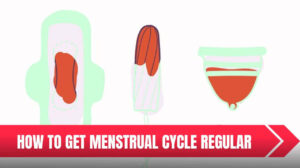How to lower resting heart rate – Our heart may beat faster than we realize. Heartbeat became one of the important factors that can predict the risk of heart disease. Moreover, if the heart rate was remain faster, though in a state of rest. It could signify the heart keep working hard to pump blood flow even though no significant physical activity.
The higher the heart rate while at rest indicates more weight the heart’s work. It can indicate the risk of cardiovascular problems, such as heart disease and high blood pressure.
Based on the guidelines reported by the American Heart Association, people over the age of 10 should have a heart rate of 60 to 100 per minute. While athletes are 40 to 60 per minute.
When the right checking the heartbeat is when waking up in the morning. Stick two fingers, usually the index finger and middle finger, at the wrist that is aligned with the thumb fingers for 15 seconds. Calculate your heart rate, then multiply four to knowing heart rate per minute. This is a basic heart rate or heart rate at rest.
What causes rapid heartbeat at rest?
There are a number of factors trigger the fast heart rate, i.e. age, exercise, stress or anxiety, fever, too much consumption of caffeine or alco**hol, drug side effects, and the habit of smo**king.
In addition, there are also certain health conditions that can cause rapid heartbeat, such as high blood pressure, anemia, hipertiroid, heart failure, electrolyte disorders on the body, as well as electrical heart disorders (arrhythmias).
As you get older, the heart rate tends to be increasingly slowing. However, this does not apply if there are particular factors which make the heart rate becoming increasingly faster.
Read also: How to lower resting heart rate.
How to lower resting heart rate
Too fast heartbeat in most cases is the result of other heart conditions, so take steps to live a heart-friendly lifestyle will usually improve your overall health. For example:
Heart-friendly diet.
The first way How to lower resting heart rate is heart-friendly diet. Healthy eating heart-friendly diet, such as the Mediterranean diet that involves a variety of vegetables and fruit, olive oil, whole grains, beans, fish, low/non-fat dairy products, and whole wheat.
Reduce the consumption of caffeine.
Caffeine and caffeine products such as coffee and tea is known to increase heart rate. If you think that Your heart rate is slightly too high, reduce your intake of caffeine will help it down.
Be Active.
Always active every day, or if not, most days of the week. The doctor can advise You what is a safe level of exercise for you.
Practice long breathing.
Although it seems difficult, reduce the speed of your breath will help slow the heart rate. Inhale for 5-8 seconds, hold for 3-5 seconds, then exhale slowly for 5-8 seconds. Focus on breathing in full to lower Your heart rate
Lose weight.
Lose weight if you feel the need, and keep a healthy weight.
Manage other health problems.
Manage other health problems you may have, such as high blood pressure or high cholesterol.
Splash yourself with cold water.
Splash your face with ice water to stimulate the reflex diving, which can slow down Your metabolism. Continue to splashing ice water in your face until you feel a decrease in heart rate.
Take medicine.
If you often have a very high heart rate, you can request a prescription for heart rate-lowering medicines from your doctor. Consult with your doctor to determine if the medicine is the right way for You.
Read also: Multifocal atrial tachycardia: Diagnosis, Causes, Pathofisiology, and treatment.
Know the right time for you to see a doctor.
A high resting heart rate is not necessarily harmful, but it can trigger the onset of long term health problems. In this case, you should decrease the rate of Your heart rate at regular intervals with exercise. But if you have a low heart rate, or sometimes have a high heart rate without a clear cause, which is typically when accompanied by dizziness, consult with your doctor.
Thank you very much for reading How to lower resting heart rate, hopefuly useful.







